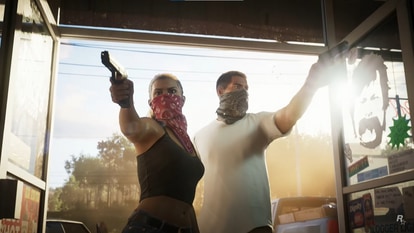Hasten end of ?dirty dozen?
For people like you and me, today should be celebrated as a day that is the beginning of the end of some of the most toxic chemicals we know ? persistent organic chemicals or POPs.
For people like you and me, today should be celebrated as a day that is the beginning of the end of some of the most toxic chemicals we know — persistent organic chemicals or POPs. Over 50 countries have signed and ratified the Stockholm Convention on Persistent Organic Pollutants.
The convention, that comes into force today, targets 12 POP chemicals, known unofficially as the 'dirty dozen', for ultimate elimination. These are known to cause cancer, immune and reproductive system damage, and are toxic to wildlife.
India, a hothouse of toxics including POPs, still has an ambivalent stand. One hopes that for the sake of public health, India begins eliminating the POPs family that includes pesticides like DDT and dioxins, amongst others.
Actually, for a country as rich in bio-diversity as India, not eliminating POPs could mean purposely losing out on our wildlife. This is because many of these chemicals build up in the eco-system and food chain, and result in the animals being born with grotesque birth defects, developing cancers or not being born at all, in the case of birds whose eggshells become so thin, they fail to hatch. Is that mess worth eliminating?
Tackle malaria sans DDT
Many malaria specialists say it is impossible to tackle the disease without DDT, which is a deadly POP pesticide. In India, DDT, banned for agricultural use, is still used for malaria control. Once DDT enters the eco-system, it will also enter the food chain, exposing us to grave ill-health.
There are many alternative ways to deal with malaria. The International POPs Elimination Network (IPEN) suggests early detection of malaria cases and prompt treatment; community participation to improve home and water sanitation levels; elimination of mosquito larvae; bed nets treated with non DDT insecticides; and, improved medical treatment and drugs.
Money is the first requirement for adopting these ways. While some of it is available, a lot is dependent on the rich countries and donor agencies and whether they will allocate more resources to help people combat both malaria and poisonous pesticides. DDT knows no boundaries and can end up in anyone's food chain, regardless of where it is used. The only way is to pump in the resources to eliminate it.
Don't burn waste
You can also be part of implementing the Stockholm Convention on POPs. It's very simple - just don't burn waste. When waste is burned, it produces dioxins, POP charge-sheeters that are some of the deadliest chemicals known to humankind. Even small amounts can be deadly. Act now! Your contribution matters too!
(If you feel for Planet Earth, write to Earthwatch1@rediffmail.com)
Catch all the Latest Tech News, Mobile News, Laptop News, Gaming news, Wearables News , How To News, also keep up with us on Whatsapp channel,Twitter, Facebook, Google News, and Instagram. For our latest videos, subscribe to our YouTube channel.

























